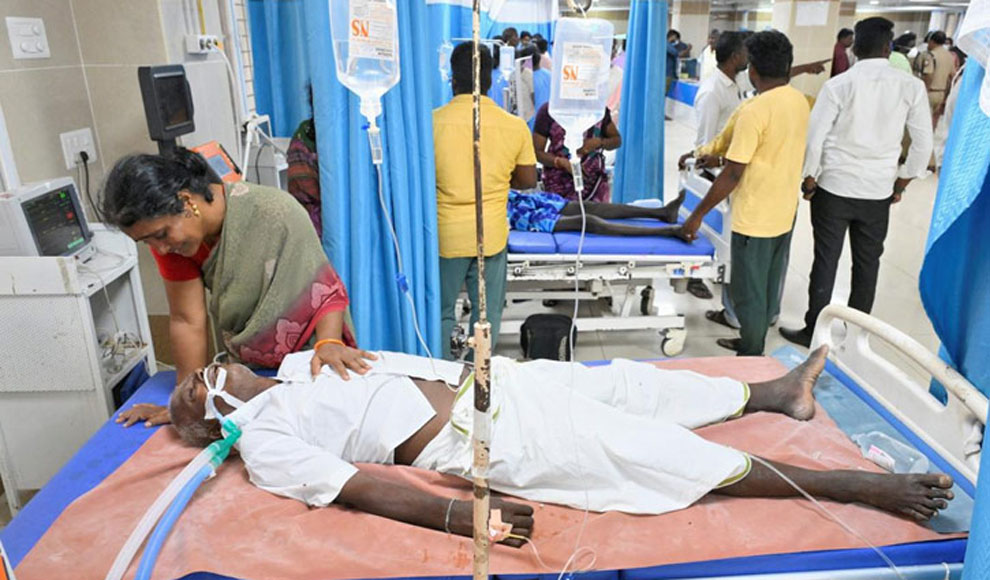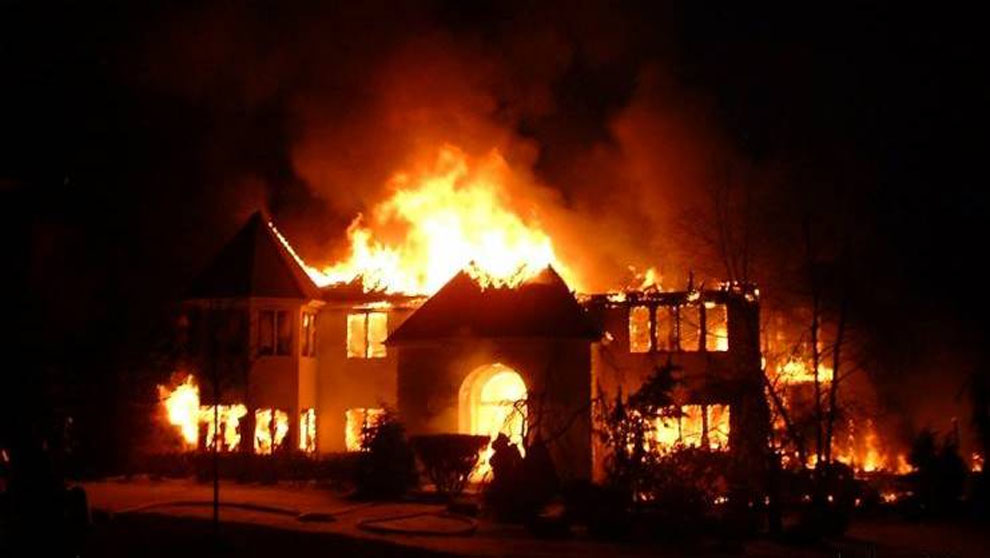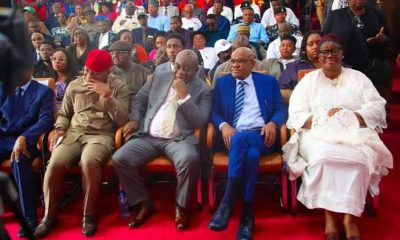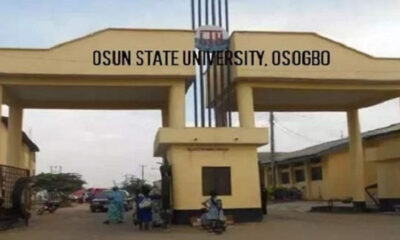metro
34 die, scores hospitalised after taking alcohol in India

34 die, scores hospitalised after taking alcohol in India
In a tragic incident in the southern Indian state of Tamil Nadu, at least 34 people have died, and over 100 have been hospitalized after consuming toxic bootleg alcohol, officials reported on Thursday.
The victims consumed locally brewed arrack, which was laced with poisonous methanol. Chief Minister M.K. Stalin confirmed the presence of methanol, a highly toxic substance often used as antifreeze, in the deadly concoction. Methanol can cause severe health issues such as blindness, liver damage, and even death when ingested in small quantities.
Stalin announced that arrests have been made in connection with the deaths. He emphasized the gravity of the crime, stating that such actions “ruin society and will be suppressed with an iron fist.” Additionally, the Chief Minister’s office released a statement highlighting the government’s commitment to cracking down on the illegal alcohol trade.
In response to the incident, authorities have suspended a senior police official and ten members of the state’s prohibition enforcement wing for negligence. This enforcement wing is responsible for preventing the smuggling of illicit alcohol in Tamil Nadu. The suspension aims to address and rectify the lapses in oversight that contributed to this tragedy.
READ ALSO:
- JUST IN: Lagos: 21 people die in fresh 401 cholera cases
- Court postpones ruling on Kano Emirate tussle
- Eagles drop 8 spots to 38th in latest FIFA rankings
India faces a recurring problem with deaths caused by cheap, illegally produced alcohol. Bootleggers often add methanol to increase the potency of their concoctions, leading to numerous fatalities each year. Despite Tamil Nadu not being a dry state, the black market for alcohol thrives due to the lower prices of illicit liquor compared to legally sold alcohol.
According to M.S. Prasanth, a top government official in Tamil Nadu’s Kallakurichi district, more than 100 people have been hospitalized following the incident. This case highlights the ongoing dangers of illegal alcohol production and the need for stringent measures to prevent such tragedies.
While Tamil Nadu permits the sale of alcohol, many parts of India have prohibitions on liquor consumption and sales. These restrictions often drive the black market for alcohol, resulting in the production of potent and sometimes lethal backstreet moonshine.
The recent deaths in Tamil Nadu underscore the urgent need for effective regulation and enforcement to combat the illegal alcohol trade. The government’s swift actions and arrests signal a determined effort to prevent future tragedies and protect public health.
34 die, scores hospitalised after taking alcohol in India
metro
Reps pass bill to strip Vice President, governors, deputies of immunity

Reps pass bill to strip Vice President, governors, deputies of immunity
The House of Representatives on Wednesday passed for second reading a constitutional amendment bill seeking to remove the immunity conferred on the Vice President, Governors and their Deputies.
The lawmaker said the move is to curb corruption, curb immunity, eradicate impunity and enhance accountability in public office.
The constitutional amendment Bill sponsored by Solomon Bob (PDP, Rivers) reads: “A Bill for an act to alter the constitution of the Federal Republic of Nigeria, 1999 to qualify the immunity conferred on the President, remove the immunity conferred on the Vice President, the Governors and their Deputies, in order to curb corruption, eradicate impunity and enhance accountability in public office and for Related Matters”.
Section 308 of the constitution confers immunity on the President, Vice President, Governors and their deputies, exempting them from criminal and civil prosecution while in office.
The House also passed for second reading, a constitutional amendment Bill to create a constitutional role for traditional rulers, while providing for the recognition of the advisory role for them in the constitution.
The two bills are part of the 42 on devolution of power, strengthening of institutions, state creation, traditional rulers citizenship, fundamental rights and objectives and local government passed by the House.
READ ALSO:
- Businessman collapses in court during trial over $578,000 cash seizure
- Fire guts Onitsha market, many shops, goods destroyed
- Security forces disperse rioters on Abuja expressway
On Tuesday, the House passed 39 constitutional alteration bills for second reading.
While passing a bill to provide for stronger measures and checks for the sustenance of autonomy of local government system in the country, it also passed for second reading another constitutional alteration bill seeking to remove local government as a tier of government constitutionally recognised and funded by the Federal Government.
The second bill sponsored by Solomon Bob (PDP, Rivers) seeks to vest the creation and funding of local government on the states.
The House is also seeking to amend the constitution to review the framework for local government administration, establish a robust legal legal regime to strengthen administrative efficiency, promote transparency, accountability and deepen democratic practice in the local government.
On state creation, The Nation observed that a bill for the creation of Etiti State from the five South eastern States was again read for the second time even though similar bill was passed for second reading.
The bill for the creation of Etiti state sponsored by Amobi Ogah and four others was first passed for first reading on the July 11, 2025 while a second bill on the same subject matter sponsored by Deputy Minority Whip, George Ozodinobi was listed and passed for second reading on Tuesday.
Reps pass bill to strip Vice President, governors, deputies of immunity
metro
Businessman collapses in court during trial over $578,000 cash seizure

Businessman collapses in court during trial over $578,000 cash seizure
A businessman, Okorie Sunday, who was arrested on March 19 at Murtala Muhammed International Airport, Lagos, with $578,000 in cash, collapsed in court during his trial on Wednesday, March 26.
Okorie appeared before the Federal High Court in Lagos, where his trial commenced at 8:30 AM. However, he collapsed just as the court registrar was about to re-read the charges against him.
Court officials and security personnel rushed to his aid, and proceedings were briefly halted.
Previously on Tuesday, Okorie had been arraigned in court by the Economic and Financial Crimes Commission (EFCC) on four counts related to money laundering and a currency scam.
He pleaded not guilty to the charges during his arraignment before Justice Deinde Dipeolu.
After a brief agreement from both parties for a swift trial, Okorie was remanded in custody and the case was adjourned to Wednesday.
During the resumed hearing on Wednesday, Okorie’s lawyer, Uche Okoronkwo, informed the court that his client wished to change his plea from not guilty to guilty.
READ ALSO:
- Fire guts Onitsha market, many shops, goods destroyed
- Security forces disperse rioters on Abuja expressway
- Tinubu signs South-West, South-South dev commission bills into law
The EFCC’s counsel, Chineye Okezie, confirmed that Okorie indeed wanted to plead guilty to the first two counts, and requested the withdrawal of the third and fourth counts. Justice Dipeolu agreed to the request and directed that the charges be re-read.
However, as the registrar began to read the charges, Okorie collapsed without warning. His wife and daughter, who were present in the courtroom, were visibly distraught, with both of them breaking into tears.
At the time of writing this report, Okorie had been rushed to a hospital for medical attention, and the proceedings were temporarily halted.
The arrest took place when Okorie arrived in Lagos from Johannesburg aboard South African Airways Flight SA60 on March 19.
Initially, he declared only $279,000 at the airport’s currency declaration desk. However, a routine search revealed an additional $299,000 concealed in multiple packages, bringing the total sum to $578,000.
Authorities also discovered €100 and a counterfeit $250 note among the undeclared funds.
The EFCC charged Okorie with violating Sections 3(5) of the Money Laundering (Prevention and Prohibition) Act, 2022, and Sections 3(1)(a), 5(1)(b), and (2) of the Counterfeit Currency (Special Provisions) Act, Laws of the Federation of Nigeria, 2004.
Businessman collapses in court during trial over $578,000 cash seizure
metro
Fire guts Onitsha market, many shops, goods destroyed

Fire guts Onitsha market, many shops, goods destroyed
A night fire at the popular Iweka Road, near Ochanja market in Onitsha, Anambra State, destroyed shops and products worth millions of naira.
Our correspondent reported that the fire, which erupted at 8.30 p.m. on Tuesday, destroyed many shops, reducing products and property to ashes.
Although the source of the fire has yet to be determined, it was said that it raged for several minutes before firefighters arrived, as some of the dealers had gone home.
Confirming the fire incident on Wednesday, the Anambra State Fire Service’s Media and Publicity Unit, commanded by state fire chief Chukwudi Chiketa, said it received a distress call at around 9.40 p.m. and quickly dispatched a crew of firefighters and firefighting equipment to the location.
READ ALSO:
- Security forces disperse rioters on Abuja expressway
- Tinubu signs South-West, South-South dev commission bills into law
- How ritualists, native doctor drugged, murdered underage sisters in PH – Police
Chiketa said, “Anambra State Fire Service at about 9.40pm on Tuesday, March 25, received a distress call about a raging fire outbreak at the popular Iweka Road, close to Ochanja Market, Onitsha.
“Immediately, a crew of firemen and firefighting equipment was deployed to the scene of the fire outbreak. They fought gallantly and contained the incident, stopping the fire from further escalation.
“The incident affected four shops, and many others were saved in a two-storey building. These shops contained furniture materials such as leather, foam and others.
“The cause of the fire outbreak has not been ascertained. The crew of firemen withdrew from the incident’s scene at 03:05 (3.05am) of the next day, Wednesday 26th March.”
Fire guts Onitsha market, many shops, goods destroyed
-

 metro1 day ago
metro1 day agoAttack on Mufty of Ilorin: Onikijipa Family Charges Stakeholders to Call Sheikh Habibullahi Al-Ilory to Order
-

 metro3 days ago
metro3 days agoCourt refers Ojukwu property case to alternative dispute resolution
-

 Health2 days ago
Health2 days agoNigerian doctor pioneers W’Africa first robotic prostate cancer surgery
-

 metro3 days ago
metro3 days agoCBN rejects Osun nomination of ex-Aregbesola’s commissioner as bank director
-

 metro3 days ago
metro3 days agoRivers: Presidency reveals security intelligence leading to emergency rule
-

 metro2 days ago
metro2 days agoFubara: Supreme Court reacts to photo of Justice Agim with Wike
-

 metro2 days ago
metro2 days agoUNIOSUN mourns as 5 students die in auto crash
-

 metro3 days ago
metro3 days agoShehu Sani faults senators taking voice vote objection to media













